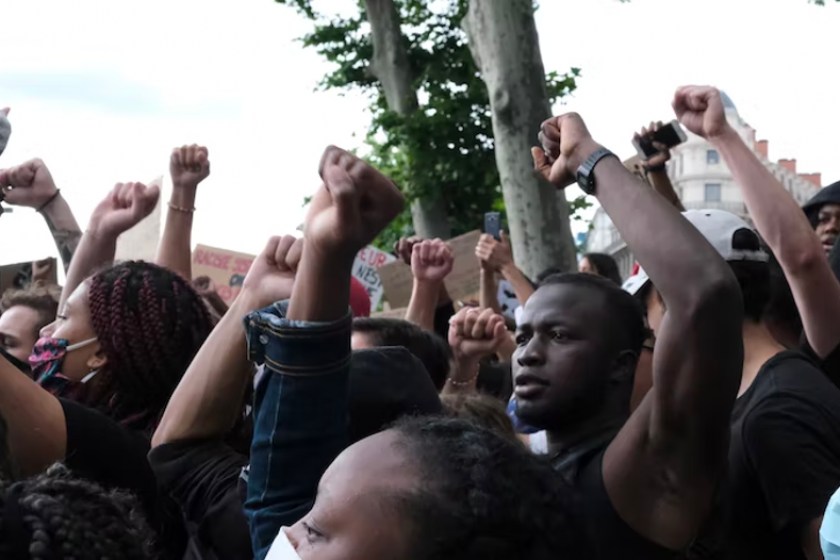By Maxine Thomas-Asante
As an organisation that actively pursues race equality, it is always a difficult question to decide whether or not to actively celebrate Black History Month. On the one hand it is a fantastic opportunity to champion the fantastic work of Black community organisations. It is a time Black experiences in Britain are truly visible. On the other hand, we contribute to the pattern of only championing Black communities during one month of the year, which is detrimental in the longer term.
What are the origins of Black History Month in Britain?
It is hard to argue that the origins of Black History Month were anything but admirable. Black History Month was first celebrated in Britain in 1987. Akyaaba Addai Sebo was a Special Projects Officer at the Greater London Council and the founder of British Black History Month. The idea was to celebrate the contributions of African descendants and Afro-Caribbean communities to Britain’s tapestry. Sebo observed the lack of pride that many Black children had in being associated with Africa and sought to reshape the self-perception of the Black British community. Black History Month in Britain began in London but quickly spread across the country.
Britain took inspiration from the introduction of a Black History Month in the US, which was launched in 1976. The American Black History Month was the inspiration of Carter G Woodson, a Harvard graduate, who promoted Negro History Week in 1926. Woodson was also the author of the acclaimed Mis-education of the Negro, which critiqued the impact of the education system on Black communities. The event was expanded in 1970 and is now celebrated by American presidents annually in February.
Black History Month is largely celebrated by as a public demonstration of inclusion by public institutions, private corporations and – most importantly – community groups. Conventionally in Britain, this takes the form of events, conversations, visual representations, and a stronger digital presence. The challenge is that the work cannot and does not stop here.
More than a month
It is really important that we realise Black communities, initiatives and organisations exist year-round. Not only do they exist, but they persevere against the odds and often without the necessary investment. Extensive evidence demonstrates that in Britain, Black communities are systemically economically disempowered. In business, Black entrepreneurs receive approximately 0.24% of capital. In academia, Black researchers struggle to access funding and represent less than 1% of all professors. In philanthropy, 87% of micro and small voluntary sector organisations led by racialised people were are serious risk of closing within 3 months of Covid-19 lockdowns. If we are serious about race equity, it is going to take a consistent and concerted effort to make true change.
Also, while Black History Month promotes diversity by preserving space for Black people in Britain to be acknowledged, it does little to truly shift power towards Black communities. There is a significant need for Black Britons to be given the resources for transformational change, to be protected from hyper-surveillance, over-criminalisation, and consistent discrimination. One month of visibility cannot reverse 11 months of systemic violence.
That being said, there are many countries – and developed economies – that do not have the privilege of celebrating Black History Month. Black communities in countries such as Germany continue to lobby for a national Black History Month, where AfroGermans can be celebrated and can gather freely. Despite the fantastic work of Black community groups in Berlin, the lack of political interest has prevented this from developing into a national happening. In France, it is illegal to collect data on the ethnic identity of the population under French ideals of equality and fraternity. In practice this makes it incredibly difficult to mobilise and advocate for Black communities without the necessary data to convincingly demonstrate structural discrimination. Thus, it is important that as a Black British Community we use Black History Month as an opportunity to push for the transformative change that we know is necessary.
How else can we take action towards racial justice?
So, if we agree that Black History in Britain deserves more than a month, it is time to ask ourselves in addition to celebrating Black History Month, what else can we do?
As funders our top 5 key pieces of advice from our Racial Justice and Social Transformation: How Funders Can Act research is:
- Educate yourself on the history of philanthropy in Britain and the power dynamics involved in common practices.
- Make redistributing power a priority. It is not just about what we do but how we do it.
- Embed accountability practices into your commitments to advance racial justice so that outputs are tangible.
- Create space to accept failure and try new things. This means reimagining how we consider risk.
- Practice your racial justice ideology within your organisation. Transformation also relates to the diversity in your staff teams and how those people experience the workplace.
Also, to develop your learning further, some great BHM Events you can attend include:
- 12th October 2022 – Racial Justice and Transformation in Philanthropy: A Conversation
- Enjoy some art by Black creatives – 10 Highlights of Black History Month this October
Happy Black History Month!

